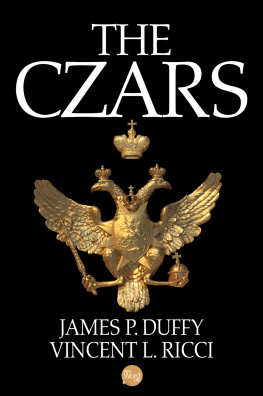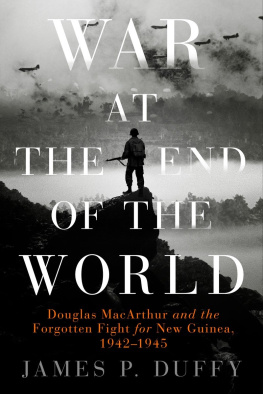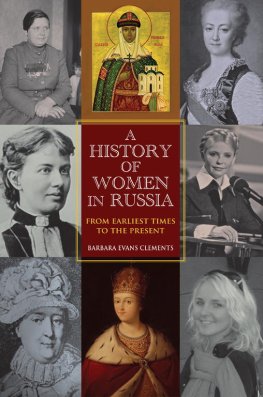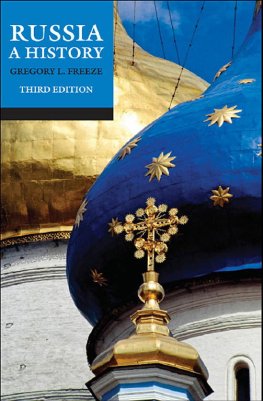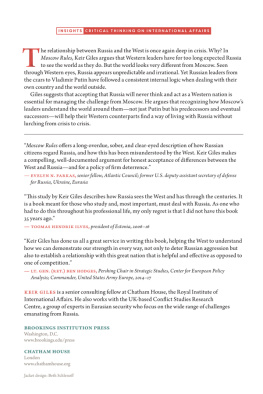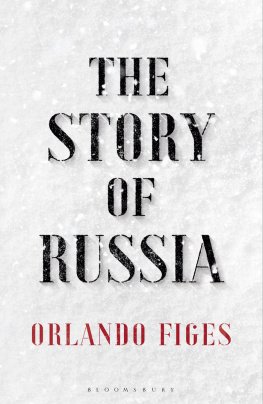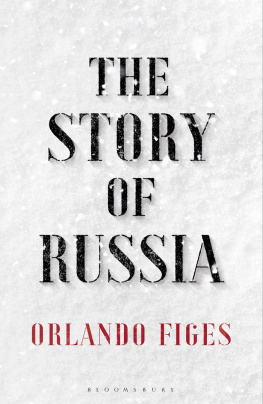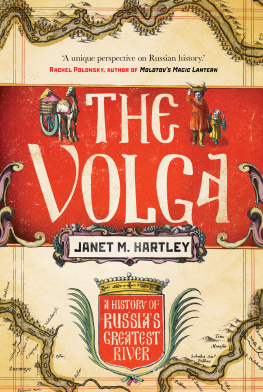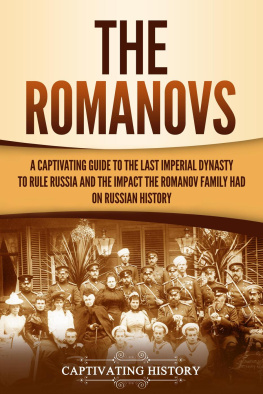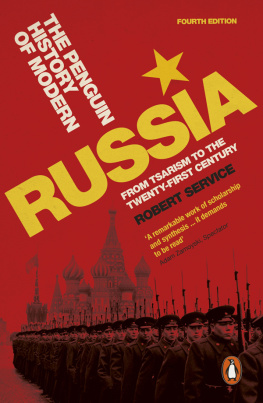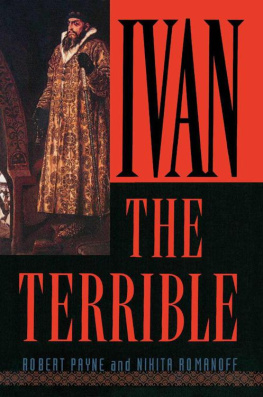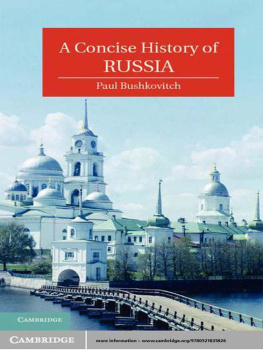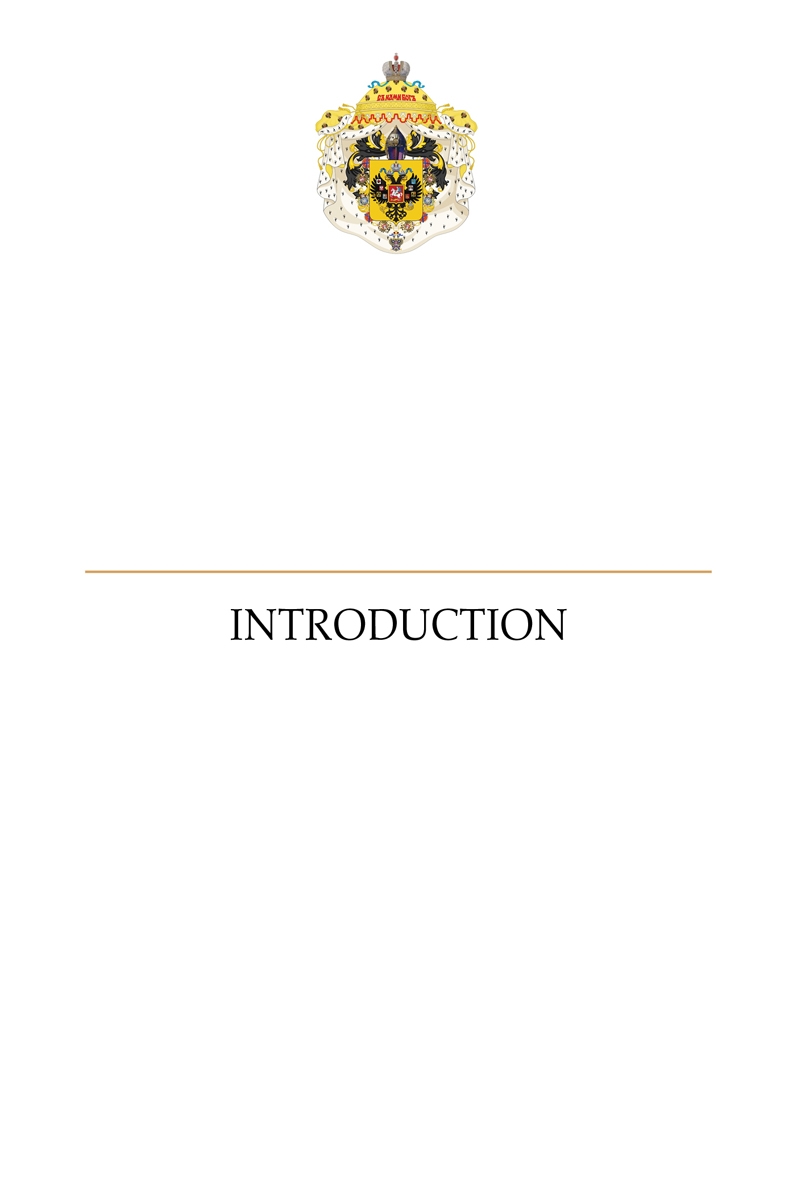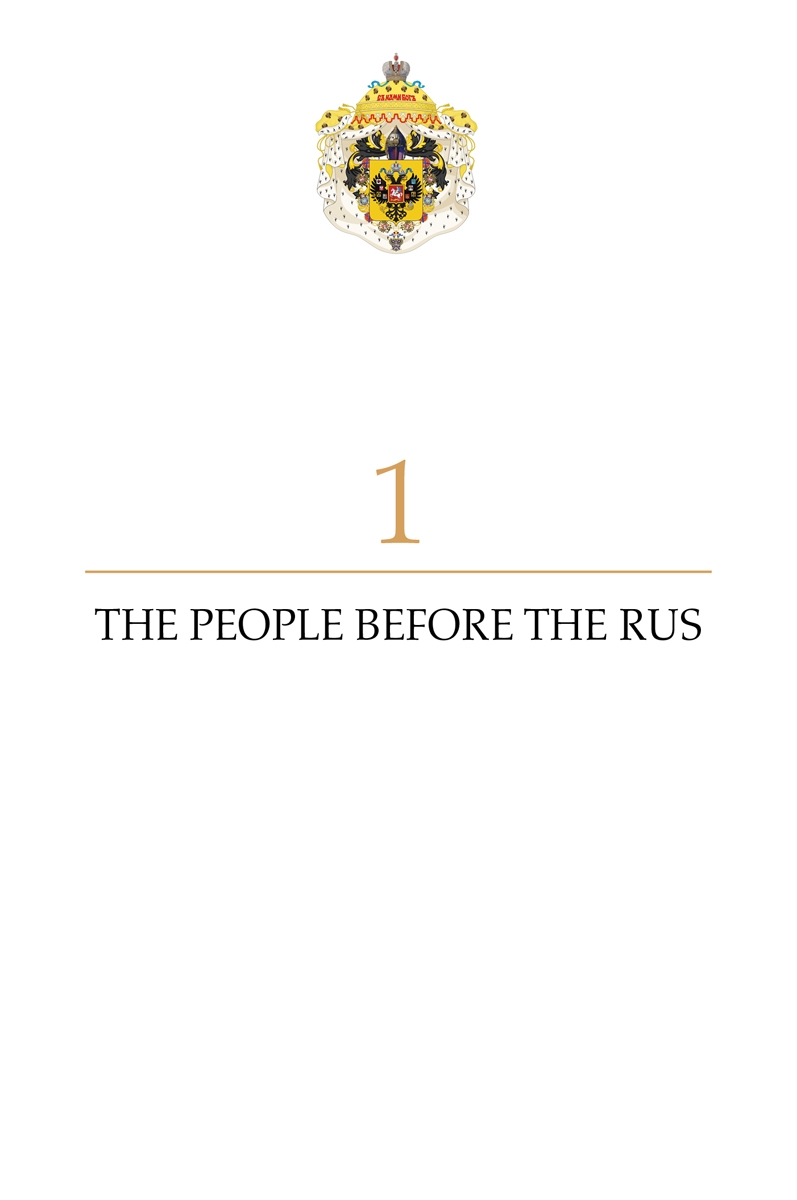RUSSIA. THE NAME conjures images of broad fertile steppes, the vast snow-swept barren expanses of the Siberian wilderness, and the opulent, mysterious lifestyles of autocratic rulers. Despite our strong historical ties to England, we Americans have a casual knowledge of more Russian emperors than British monarchs - from their jewel-encrusted sable robes and the exquisitely beautiful Faberg eggs collected by the last czars, to their frequently brutal despotism. Peter the Great, Ivan the Terrible, Catherine the Great, and the last, most tragic Russian emperor, Nicholas II, and his wife, Alexandra, are as familiar to us as major characters in our own history.
Yet, these are merely four in a long line of sovereigns who ruled that mighty nation for more than 1,000 years. In the following pages, we will come to know all the monarchs who helped to shape Russias destiny. Little is actually known about the early princes who ruled the fledgling Russian nation because, until the arrival of Christian missionaries in the latter part of the ninth century, the Slavs had no written language with which to record their own history. Much of the history that survives was written centuries later in chronicles based on folk tales handed down from one generation to the next. It is probable that much information was diluted, lost, or embellished in the process, making the details less than certain. However, because those details are the only ones that are available, we are, in a sense, stuck with them without the ability to confirm or refute what they say, except in those rare instances when heroic deeds or the numerical strength of Russian forces appear out of place with the time and locale.
The history of the earliest years of Russia is thus a combination of Slavic myths, Viking tales, historical records kept by civilizations - primarily those of the Byzantine Empire of Constantinople - that came in contact with the earliest Russians, and stories passed down through the generations. In a general sense, its progress appears realistic, and until some unknown contemporary chronicles are discovered, this is the only history of Russia that exists.
Now, a word about spelling and dates. Russians use a different alphabet than the Roman one used in the West. Although some evidence exists of earlier forms of writing in the Slav lands, genuine literacy, including a common alphabet, was first introduced by Christians. The Russian alphabet is called Cyrillic, after its creator, St. Cyril. Because Russians use a different alphabet, their language cannot be readily translated into English, but must be transliterated. This means that English words cannot be substituted for Russian words, and that each Cyrillic character must be treated individually in the process. In addition, the writer must choose from a wide variety of alternative methods of transliteration. For example, a direct transliteration of the Cyrillic name for the capital of Russia would be Moskva, yet we commonly call it Moscow. The same problem arises with the popular Russian names Alexander (Aleksandr), Peter (Petr), and Nicholas (Nikolai). In the case of Ivan, the direct transliteration is Ioann, which becomes John. To preclude any confusion that could result from a strict transliteration of Russian into English, we have elected to use the word forms most commonly used in the West. Thus, instead of referring to one of the most infamous Russian leaders as John the Terrible, we call him Ivan the Terrible (to confuse the issue even further, a direct transliteration would actually be John the Dread). Although some scholars and purists may disagree with our method, we believe it contributes to an eminently more readable book. We hope our readers concur.
Until the late sixteenth century, Europeans used the Julian calendar, which was developed by the Roman emperor Julius Caesar. In 1582, the West converted to the Gregorian calendar, which was introduced by Pope Gregory XIII. Russia, however, retained the Julian calendar until the Bolsheviks adopted the Gregorian calendar in February 1918. As a result, the calendar used by the Russians during the first seventeen years of the twentieth century lagged behind the Western calendar by thirteen days; by twelve days during the nineteenth century; and by eleven days in the eighteenth century. These discrepancies are important if one wishes to relate an event that occurred inside Russia with another that happened elsewhere on the same day.
The history of Russia covered in this book falls into four distinct periods. The first is the ascendancy of Kiev, in what is now Ukraine, as the dominant influence in a confederation of principalities that covered a large portion of what would become the Russian Empire. The grand prince of Kiev, so designated because every prominent Russian settlement was governed by a local prince who swore allegiance to him, was the leader of the Kievan realm and the forerunner of the Russian emperors and czars. Kiev remained the seat of Russian power and commerce until it was sacked and burned by a rival of the grand prince in 1169. That defeat was followed by the second period, during which the political center of Russia moved first to the northern town of Vladimir, then to Moscow. During this era, the mounted hordes of the Mongolian khan cut a wide swath across Russia, subduing the insular Russian princes and reducing them to vassals of the khan.
The third period of Russian history began with the reign of Ivan the Great in 1462. Ivan drove the Mongols from Russia, declared himself autocrat of all Russia, and began the initiative that finally united all the Russian principalities under one strong central government. The fourth and final period began in 1613, when the dynasty founded by the Viking prince Rurik was supplanted by Czar Michael I and the throne passed to the House of Romanov. This period ended in March 1917, when the last czar, Nicholas II, abdicated in favor of his brother, Grand Duke Michael, who refused to accept a throne that was by then all but nonexistent.
After the fall of the House of Romanov and the rise of the communist totalitarian dictatorship, the grand princes, grand dukes, and czars all but vanished from the official memory of Russia, although many older people secretly kept photos and other mementos of their czarist past in their homes. Since the collapse of the communist Union of Soviet Socialist Republics in December 1991, a surprisingly large number of Russians have been demonstrating a renewed interest in, and devotion for, their imperial past, even calling for Nicholas II to be made a saint of the Russian Orthodox Church.
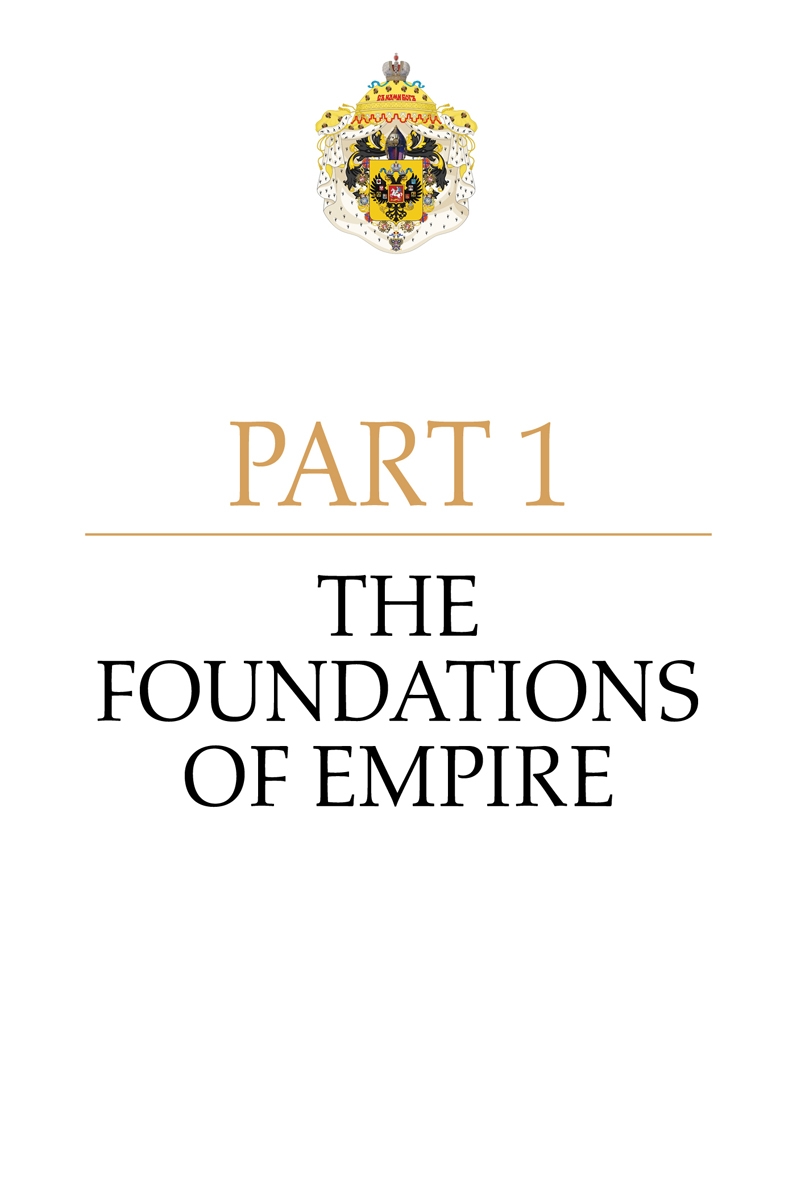
NINETEENTH-CENTURY WESTERNERS considered Russia to be a nation with an Asiatic character. Most Europeans judged the Russians to be vaguely Oriental as opposed to European because Russia had been isolated from the progressive advances of Western European civilization for hundreds of years by czars who had total control over every aspect of Russian life. Actually, the people we now call Russians, and the nation we know as Russia, have European rather than Asian origins. Although the vast lands of the Russian Empire were inhabited by many peoples of varying heritages, the cradle of modern Russian society lies in the fertile lands of what is today southern European Russia and Ukraine. This territory, north of the Black Sea, is bordered by the lower Danube River in the west and the Don River in the east.

